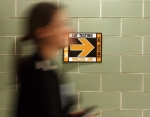How Catholics Can Save American Education
I was a teacher and then worked in test prep before starting the Classic Learning Test. Before and especially since then, I’ve reviewed a lot of high school curricula, particularly from Catholic and/or classical high schools, which tend to get some flak for their focus on things like Latin, rhetoric, and philosophy. When people argue over the point of including classes like “An Overview of Medieval Mysticism” in a high school curriculum, it’s never long before someone says something like, “Oh, come on! When are they going to use that in real life?”
Now, there are a lot of things about this attitude that are weird. (For example, how and why is high school apparently not “real life”? Does it take place in the Matrix?) But the worst one is probably the idea that the workplace is real life. Because, let’s be honest, the workplace is what they’re talking about. They don’t mean that you won’t use what you learned about St. John of the Cross while you’re on a hiking trip building friendships that will last decades, or that it will never be relevant to the readings and the homily at Mass – even though, if you think about it, Mass has a much more convincing claim to be “real life” at the expense of everything else we do. What they mean is that you probably aren’t going to use that knowledge in the office. Put more crudely, they mean you aren’t going to be able to make money from knowing it. That’s a really sad idea of what education is.
The reason I started the CLT in the first place was because, as a parent and a Catholic, I want more for my kids than that. W. E. B. Du Bois famously wrote that “the object of education is not to make men carpenters, but to make carpenters men.”4 In other words, the kind of education that’s primarily about making money is an unsatisfying, inadequate substitute for the kind of education that enriches students. Education should mature and develop our powers as human beings – the powers of perception, analysis, reasoning, judgment, and creativity that we have from God as beings made in his image. That means training students to deal with questions that we all have sooner or later: questions about truth, beauty, right and wrong, the purpose of life, and what lies beyond death...
2. The importance of school choice and academic freedom. This is something I’ve been emphasizing since before I even founded the CLT. If parents are the primary educators of their children, they need to have the right to choose how to educate their children. If they choose to send their kids to public school, they have a right to know what’s being taught at the school, to give teachers and administrators feedback about it, and to be heard; if they want to send their kids to Catholic school, it should be affordable; and if they decide to homeschool their kids, their legal right to do that should be recognized and protected by the state. This point is where education is most likely to come up in the voting booth, because there are groups in this country that want to limit or even abolish school choice and academic freedom, including the freedom to homeschool.
I see a lot of this, often coupled with criticisms of religious education. Some of these critics claim to have concerns about domestic abuse, and, to be fair, some of them are probably sincere. Domestic abuse does happen, and it’s a danger we absolutely need to be vigilant about. But abuse happens in out-of-home schools too; singling out and getting rid of homeschooling, as if it were the problem, is really not the answer here!
Some opponents of homeschooling are probably also moved by prejudice or have an agenda they want to use education to impose. Book banning is a common tactic with groups that think this way; the recent flurry of school book bans we’ve seen in several states concerns me. In 2022, To Kill a Mockingbird, Adventures of Huckleberry Finn, Of Mice and Men, and Roll of Thunder, Hear My Cry were only some of the classic titles taken out of schools.
It’s also not uncommon for them to scaremonger about such-and-such an ideology being taught in classrooms, even though, if you look into it, it isn’t being taught in classrooms at all. Be on the lookout for buzzwords and the kind of rhetoric that describes everything like an emergency. Those things are designed to get you to act without taking the time to think. Anger, anxiety, and panic don’t honor Christ crucified.
The quick and dirty summary is: if a politician or a proposal is against school choice, that probably means in practice that they’re going to endorse interference with parents’ rights to educate their children – rights the Church teaches the state should be safeguarding, not dismantling.






